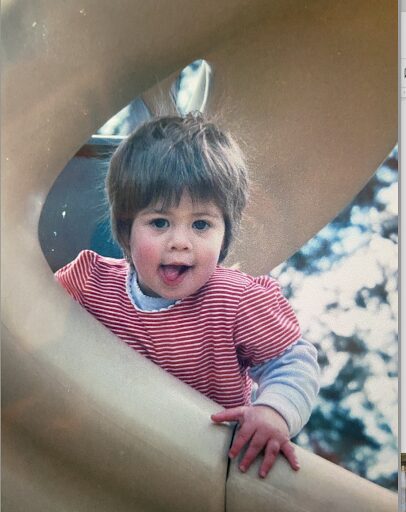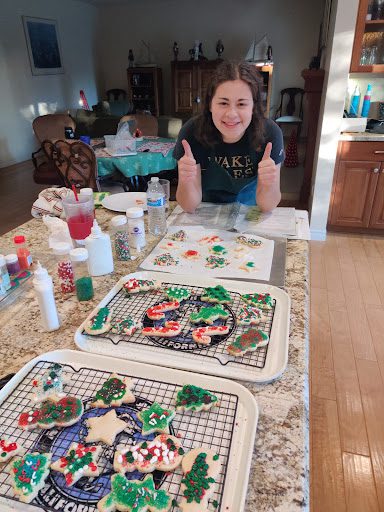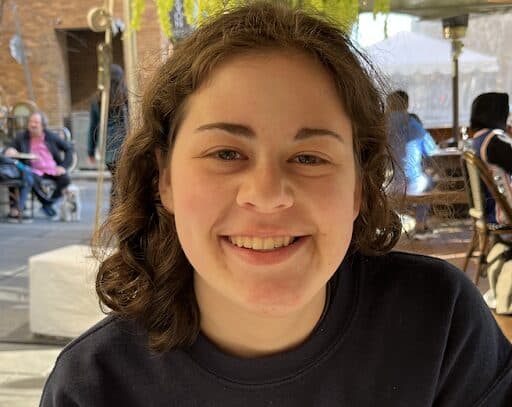My two major OCD themes, perfection, and harm can be explained together by something that’s not generally associated with the disorder, Santa Claus. This sounds a bit strange, especially coming from a Jewish girl who attended religious school and temple all of her life, but it’s true. While Santa symbolizes joy, happiness, hope, and comfort, my OCD was just the opposite.

I spent my childhood thinking that everything needed to be perfect. This manifested in a variety of areas in my life, but the largest, most debilitating area by far was education; straight A’s were my ticket to perfection. I worked tirelessly to be a stand-out student. Anything lower than 93% would send me into a full panic and meltdown (yes, even in college). The importance of A’s had been drilled into me from a young age – not from my parents or teachers, but from my OCD.

This is where OCD and values can get muddied. My true values were to do well in school; I cared about my education and wanted to learn from my teachers. However, my OCD took that to the extreme; every test, worksheet, paper, and article felt like a dire situation. A distinct memory of mine was in my college Spanish 111 class. My professor mentioned on the first day that we would have daily quizzes to make sure we were keeping up with the material.
Daily quizzes. My nightmare. These quizzes were meant to be easy and simple, with only about five questions that took less than five minutes. About a month into the course, we started learning adjectives. Cue Santa. The first question on the board read: Santa Claus es _____. I wrote my answer, did a quick second guess of myself (as always), and turned in my sheet.
After everyone finished, we went over the answers. I realized that I had made a huge mistake, I wrote guapo instead of gordo. Essentially, I had called Santa handsome instead of fat. My eyes immediately welled with tears. I had gotten a ⅘. That was not perfection, that was a B-. The situation quickly turned embarrassing. While the rest of the class moved on from our tiny quiz, I was desperately trying to hide the fact that this one wrong answer was about to ruin my academic career (or so I thought).
My OCD was screaming while I tried to keep my cool for the rest of the 50-minute class period. My thoughts were so intense that I actually went up to my professor after class and tried to argue that I was right. I was literally trying to convince my 60-year-old Spanish professor that I thought Santa Claus was a handsome hunk. Shockingly, she didn’t buy it.
I also spent my childhood with severe intrusive thoughts about intruders. I was terrified that I would get kidnapped, which resulted in an intense checking ritual that lasted over an hour every night before I went to bed. I would check every room in our two-story house. This involved checking under every bed, in every closet, and in every cabinet (because yes, my OCD somehow believed that grown adults could fit into cabinets). The FBI would have trouble matching my thoroughness.

The final check of the night was always our alarm system, while I trusted my parents with nearly everything, no one was responsible enough to be trusted with turning on the alarm. I was terrified of kidnappers for so long that I began equating the alarm with kidnappers; just the thought of it going off was enough to send me into a panic.
These rituals were cemented into my routine from a young age. I felt pretty confident that my routine would protect me from the alarm ever going off. That is until Christmas time came and the buzz about Santa started. “He just slides down your chimney! He brings the presents right into your house!”
If I would have focused on the logic that (a) I’m Jewish and (b) my house doesn’t even have a chimney, maybe I would have realized that I really didn’t have anything to fear. However, OCD told me that I had everything to fear. I had somehow convinced myself that Santa would forget I was Jewish and that he would find a way into my house, thus triggering the alarm system.
Both of the aforementioned experiences – my perfectionism with grades and severe fear of intruders – were helped immensely by Exposure and Response Prevention (ERP). My journey toward recovery has been grueling and challenging, yet also incredibly rewarding.
I used to spend hours every night doing homework and preparing for quizzes and tests. I would create detailed flashcards for each class to the point where I had nearly memorized my textbooks. I would review my flashcards daily, even if I had already proven to myself that I had retained the information. Now, I make a commitment to throw out my flashcards the first time I get the right answer. I live with the uncertainty that I can always study more for exams and choose to spend the time that I save by doing things that follow my values.
Do I still want to get above 93% on every assessment? Absolutely. Did my grades suffer at all by engaging in ERP? Not in the slightest. The same can be said regarding my daunting obsessions about intruders – they continue to be unrelenting, but my reaction is not as visceral. I learned the difference between the possibility and probability of an event occurring, which helped immensely. Plus, I haven’t been kidnapped…yet… (to add in some uncertainty!).
During treatment, I developed a hierarchy of my fears relating to the alarm system and kidnappers. I slowly chipped away at my smaller compulsions (such as checking a coat closet downstairs) and ultimately was able to achieve my largest exposure – having my parents turn on the alarm for me and not checking it. Some nights, my parents don’t even turn on the alarm and I sit with the uncertainty that kidnappers may be in my house.
This has taken many years. I have had numerous painful nights filled with tears, anxiety, and panic. However, my calm nights vastly outnumber the ones in which I suffer. ERP is challenging, distressing, and frustrating, but boy is it worth it.

I look back on these memories and still feel the pain that was caused by those moments. At the same time, I feel an immense amount of gratitude and pride for my journey with ERP, one in which I can embrace Christmastime while also being able to admit to myself (and my professor)that maybe Santa Claus is not my type.

